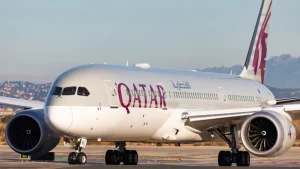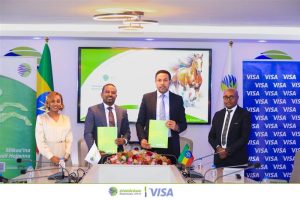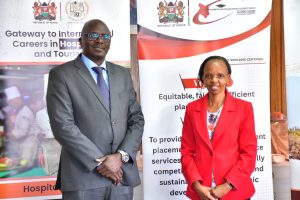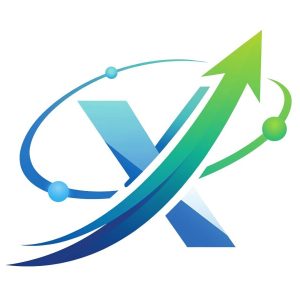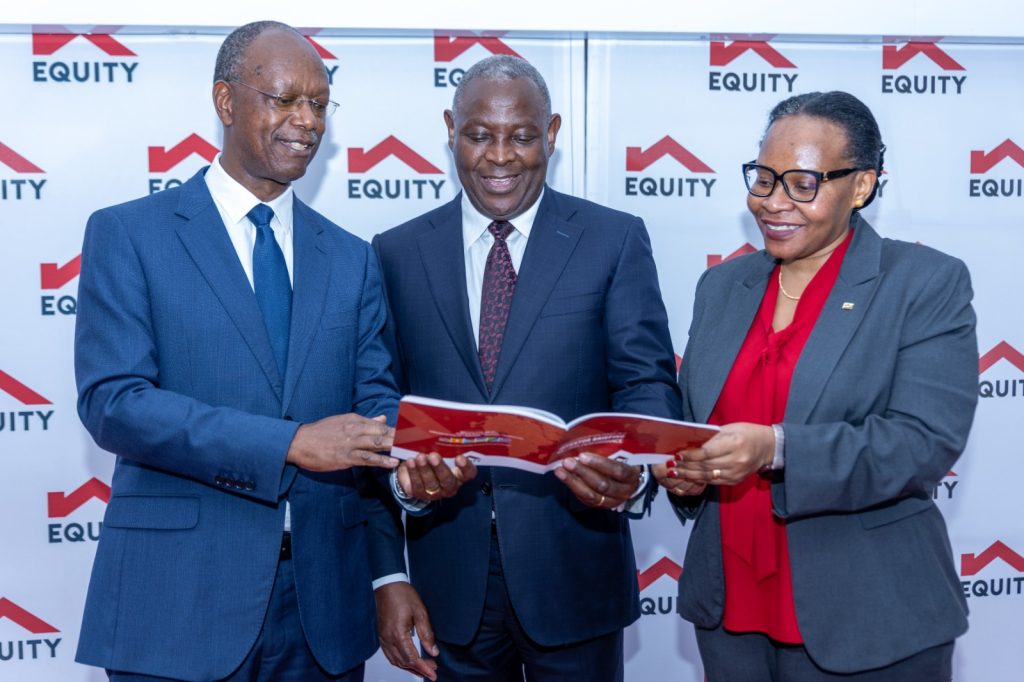
From Left to Right: Equity Group Non-Executive Chairman, Prof. Isaac Macharia, Equity Group Managing Director and CEO, Dr. James Mwangi, and Equity Bank Tanzania Managing Director, Isabela Maganga, during the Q3 2025 Investor Briefing event. Equity Group Holdings Plc posted a 32% growth in Profit After Tax to Kshs. 54.1 billion, up from Kshs. 40.9 billion in the same period last year, marking another quarter of strong performance and resilience. The Group maintained solid profitability with Return on Average Equity of 26.4% and Return on Average Assets of 4.1%, supported by a 16% growth in net interest income and continued efficiency improvements that reduced the cost-to-income ratio to 50.6% up from 55.1%. Regional subsidiaries remained key growth drivers, contributing 45% of Profit Before Tax, 50% of deposits, and 53% of the loan book, with DRC, Rwanda, Uganda, and Tanzania recording robust gains in profitability, deposits, and loans. The results reflect Equity’s ongoing transformation into a diversified, technology-driven regional financial powerhouse with an expanding footprint across East and Central Africa
Equity Group Announces announces Strong Q3 2025 Results,Recording a 32% Growth in Profit After Tax Reflecting Strategic Transformation;
- Equity Bank Kenya recovery bounced back with growth in profit after tax of Kshs. 31.1 billion up from Kshs 20.6 billion.
- Equity Group’s Regional Subsidiaries Deliver Strong Performance: 19% Loan Growth in DRC and 34% in Rwanda Fuel Q3 2025 Results.
- Equity Insurance Group sustains strong momentum as it reports a 71% increase in written gross premiums, contributing to a 36% growth in profit before tax.
- Equity Bank Kenya sustained its MSME banking leadership, disbursing 45% of the Kshs 201 billion MSME loans in Kenya between January and July 2025 reflecting transformation while retaining strong focus on core SME business
- Q3 saw the Group achieve ~Kshs 98B ($715 million USD) cumulatively in social impact and sustainability investment initiatives.
Equity Group Holdings Plc has announced its Q3 2025 results, showcasing a robust performance driven by strategic transformation and resilience.
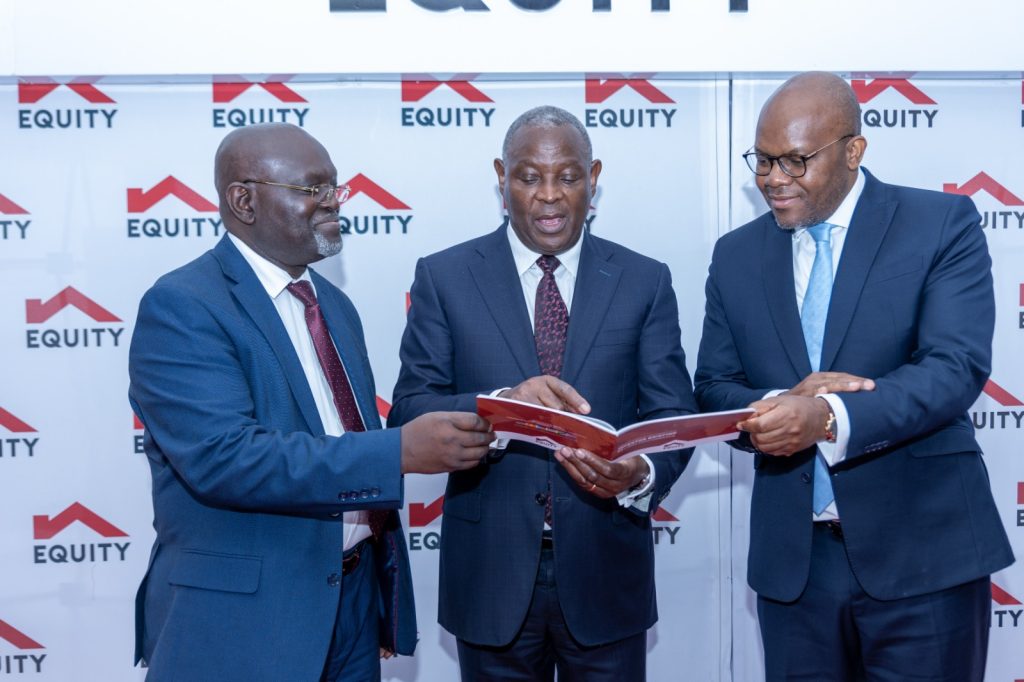
The Group’s Profit After Tax surged 32% to Kshs 54.1 billion up from Kshs 40.9 billion, underpinned by diversified and growing revenue streams, enhanced efficiency, and strong regional contributions and strong recovery of the Kenya banking business.
During the quarter, the global environment demonstrated resilience with slightly stronger economic growth expected for the year. Easing global inflation rates has been helpful in an international landscape increasingly shaped by trade tensions and fragmentation.
Most East African economies will retain the benefits of lower global oil prices which usefully combine with high prices in export commodities such as gold, copper, and coffee.
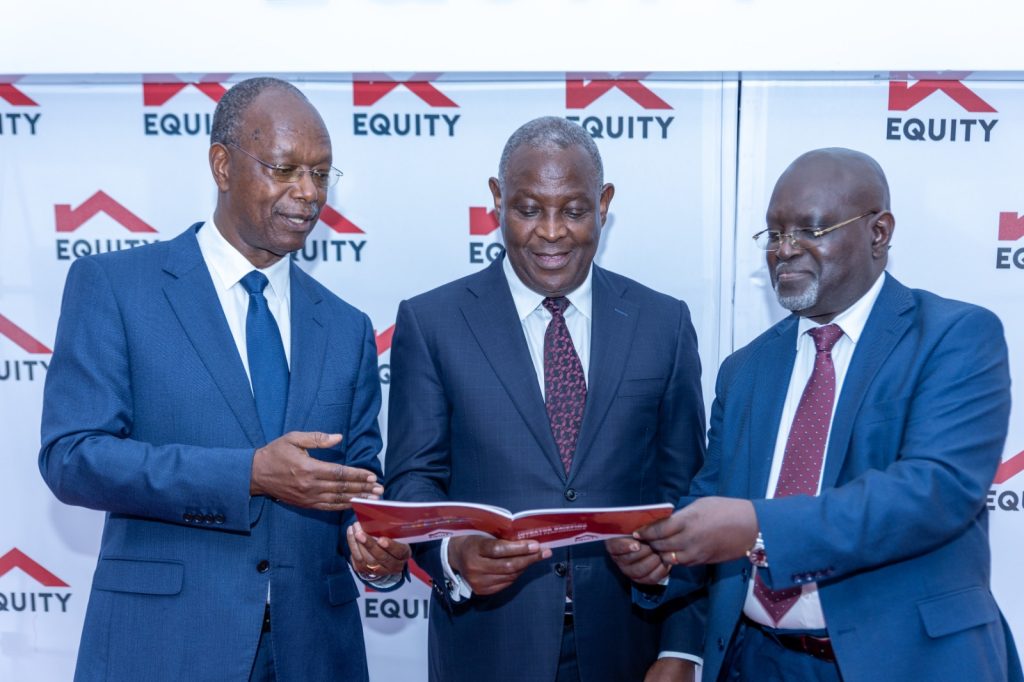
Africa stands out as one of the most resilient regions, with nine of the top twenty fastest growing economies in the world for 2025 from the continent.
In East Africa, Rwanda and Uganda are global growth leaders with regional economic momentum supported by Tanzania and Kenya especially.
Inflation trends generally support stability with low inflation in Kenya, Uganda, Tanzania, and substantial easing in the DRC.
While the region still stands to be comparatively better off regarding new trade tariffs, the end of the Africa Growth and Opportunity Act presents a mixed bag that will need to be monitored.
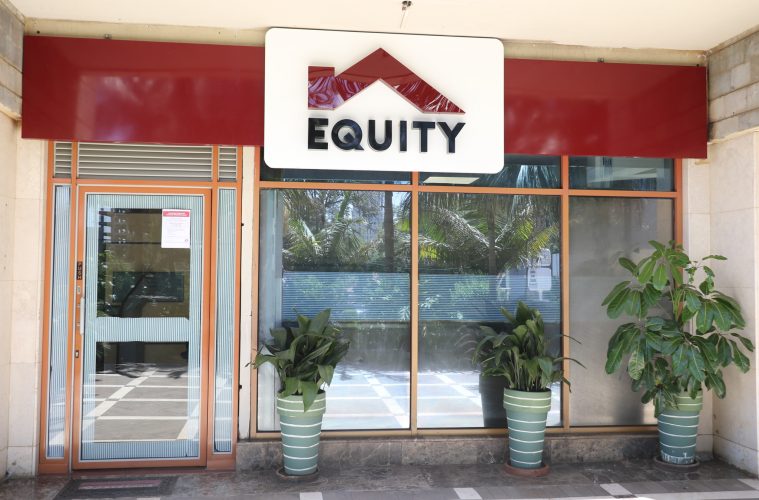 The Group has developed and mapped its 2030 strategic plan to anchor the Africa Recovery and Resilience Plan (ARRP), with an ambition to have a presence in 15 countries and serve a hundred million customers by 2030.
The Group has developed and mapped its 2030 strategic plan to anchor the Africa Recovery and Resilience Plan (ARRP), with an ambition to have a presence in 15 countries and serve a hundred million customers by 2030.
This ambition has necessitated the evolution of the core pillars, key enablers, and critical success factors. Governance and leadership continue to strengthen, focusing on capacity, competence, transparency, and experience.
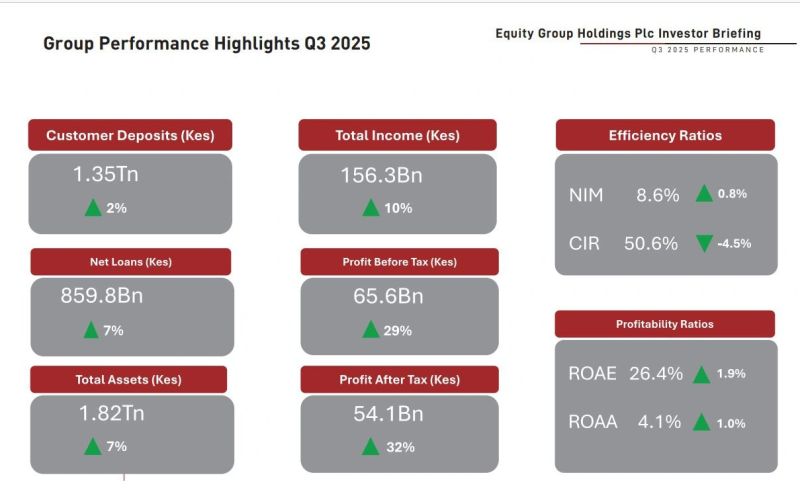 Systems and infrastructure have been fully replaced with scalable, next-generation, Fourth Industrial Revolution technologies that are digital, machine learning–enabled, and based on Generative Artificial Intelligence (GAI), with data analytics at the center of the Group’s strategy. Applications that leverage the capabilities of these systems and infrastructure, with inbuilt enhanced security and innovations, are being deployed.
Systems and infrastructure have been fully replaced with scalable, next-generation, Fourth Industrial Revolution technologies that are digital, machine learning–enabled, and based on Generative Artificial Intelligence (GAI), with data analytics at the center of the Group’s strategy. Applications that leverage the capabilities of these systems and infrastructure, with inbuilt enhanced security and innovations, are being deployed.
A go-to-market strategy has been developed for the roll-out of these transformational capabilities, delivered by a modern product house to enhance customer value propositions and solutions.
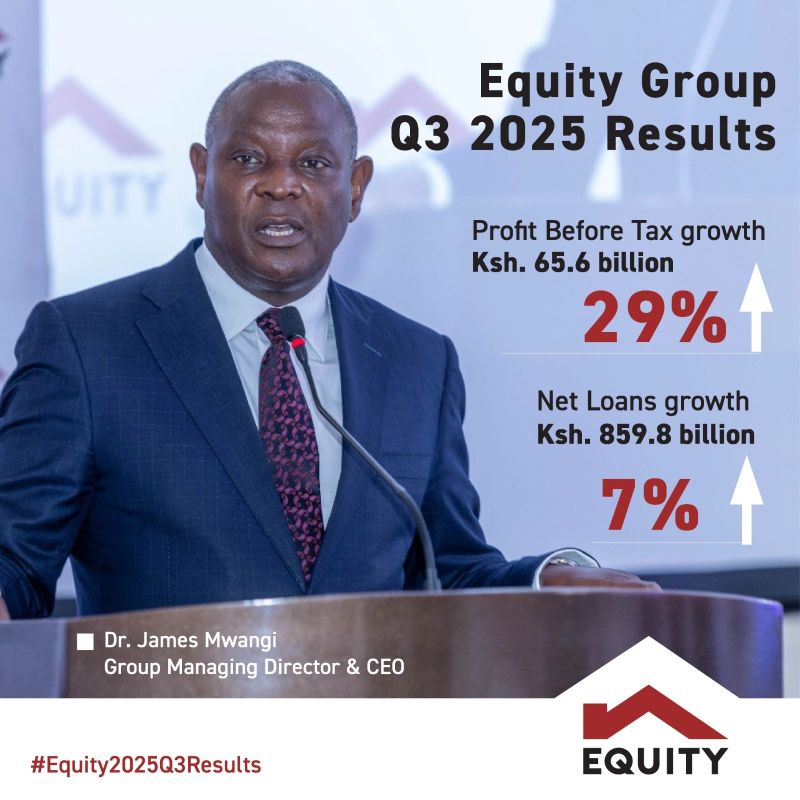 This allows the Group to serve a more diverse and segmented member market on the basis of industries, sectors, demographics, and customer-specific status.
This allows the Group to serve a more diverse and segmented member market on the basis of industries, sectors, demographics, and customer-specific status.
The Group’s organizational culture is undergoing transformation to embed customer centricity and market responsiveness as core values, integrity, professionalism, creativity, innovation, and teamwork, fostering a fit-for-purpose human capital corps and attracting and retaining talented, skilled, and experienced staff.
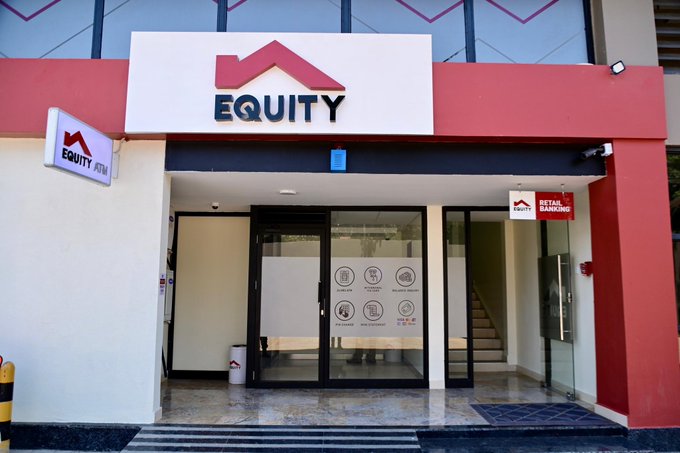
Anchored in the ARRP and its Tri-Engine Business Model, the Group is demonstrating how financial institutions can catalyze inclusive and sustainable growth by aligning private capital with national and regional development priorities.
Through blended finance, strategic partnerships, and ecosystem-building across key value chains, the Group is crowding in private investment to complement public efforts, strengthen resilience, and unlock enterprise-driven transformation.
This approach positions not merely as a bank, but as an integrated Transformation Finance Institution, bridging philanthropy, development finance, and commercial capital to deliver sustainable prosperity across Africa.
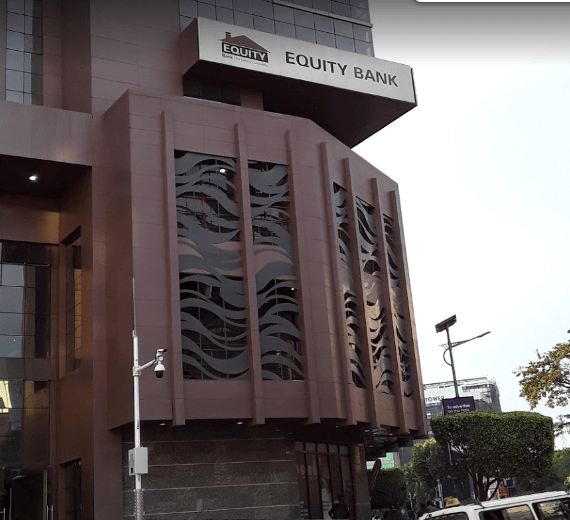
Commenting on the third quarter 2025 performance, Equity Group Managing Director and CEO, Dr. James Mwangi said, “The execution of the strategic business plan has started to reflect on the balance sheet and performance of the Group in agriculture, mining, manufacturing, trade and investment, and small and medium enterprises (SMEs) that populate the eco-systems of the formal sector in these value chains and is likely to significantly and increasingly transform the structure and performance of the Group.”
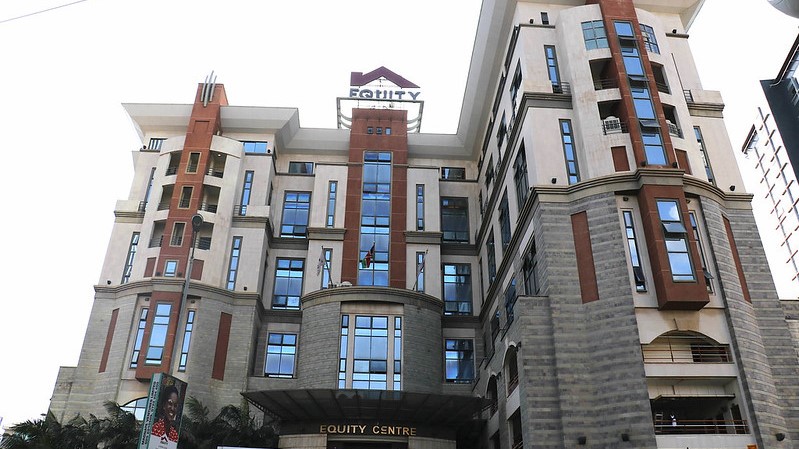
The Group demonstrated effective revenue diversification, as evidenced by a 16% growth in net interest income and 3% growth in non-funded income.
The Group also achieved improved efficiency, with the cost-to-income ratio significantly reduced to 50.6% from 55.1%, while strong asset quality was maintained through an increase in non-performing loans (NPL) coverage to 71.4% and a contained cost of risk at 1.9%.
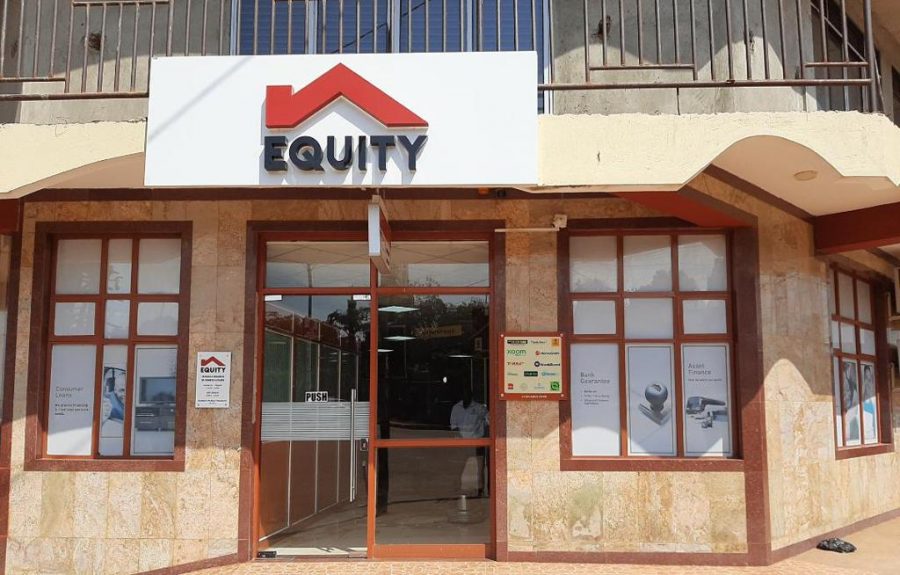 “Our Q3 2025 performance reflects the strength of our diversified tri-engine business model, operational efficiency, and continued commitment to transforming lives,” said Dr. James Mwangi, Equity Group Managing Director and CEO.
“Our Q3 2025 performance reflects the strength of our diversified tri-engine business model, operational efficiency, and continued commitment to transforming lives,” said Dr. James Mwangi, Equity Group Managing Director and CEO.
“By empowering MSMEs, leveraging digital platforms, and aligning with Africa’s socio-economic and sustainability priorities, we continue to drive inclusive growth and create shared prosperity.
We are particularly proud of our regional subsidiaries, which have demonstrated resilience and contributed significantly to our overall performance.”

In Kenya, Equity Bank reported a strong performance with Profit after Tax rising by 51% to Kshs. 31.1 billion up from Kshs. 20.6 billion in the previous period.
Net interest income grew by 27% to Kshs. 53.6 billion from Kshs. 42.0 billion, supported by a 34% decline in interest expenses, which reduced to Kshs. 25.1 billion from Kshs. 38.0 billion. Consequently, total equity expanded by 36% to Kshs. 171.4 billion up from Kshs. 126.1 billion.
 Equity Bank Kenya sustained its MSME banking leadership, disbursing 45% of the Kshs 201 billion MSME loans in Kenya between January and July 2025, and the Equity Insurance Group reported a 71% increase in gross written premiums, contributing to a 36% growth in profit before tax.
Equity Bank Kenya sustained its MSME banking leadership, disbursing 45% of the Kshs 201 billion MSME loans in Kenya between January and July 2025, and the Equity Insurance Group reported a 71% increase in gross written premiums, contributing to a 36% growth in profit before tax.
Regional subsidiaries also made significant contributions, with Equity BCDC (DRC) recording 19% YoY l oan growth and Equity Bank Rwanda achieving 34% YoY loan growth. The strong growth of the region provides a long-term runway and headways for sustained growth of the Group.
“We appreciate our customers for their continued support and patience throughout our transformation journey, despite the challenges experienced during the period,” said Dr. James Mwangi, Equity Group Managing Director and CEO.
“This transformation marks our evolution into a one-stop financial services provider, offering borrowing, investing, insurance, payments, and savings solutions seamlessly, 24 hours a day.
With system stability now fully restored, we are focused on expanding our product offerings to better serve our customers and enhance their opportunities for wealth creation.
Importantly, this transformation has not changed our true north, our unwavering commitment to supporting micro, small, and medium enterprises.
We are proud that industry data shows Equity is home to 45% of all SME loans disbursed this year. We remain dedicated to exploring greater opportunities to make this our core focus.”
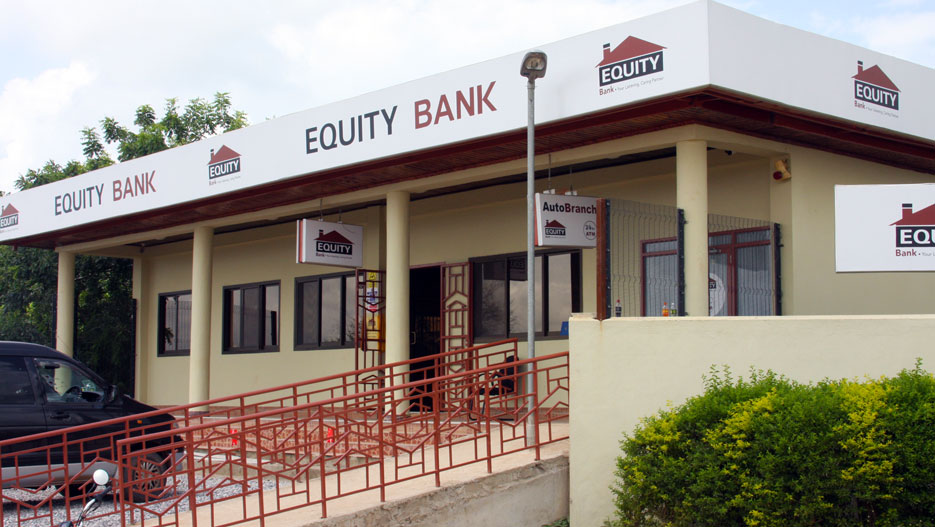
Regional diversification continues to transform Equity Group from a Kenyan bank to a regional powerhouse, with 50% of deposits, 53% of the loan book, 50% of total banking assets, and 49% of Group banking revenue originating from regional subsidiaries.
This regional banking business has been value creating, contributing 45% of Profit before Tax and 42% of Profit after Tax of the banking business.
In the DRC, Profit after Tax increased by 21% to Kshs. 13.8 billion up from Kshs. 11.4 billion. Loans and advances grew by 19% to Kshs. 302.7 billion, up from Kshs. 253.5 billion, funded by a corresponding decline in cash holdings from Kshs. 275 billion Kshs. 259.3 billion. Total equity rose by 28% to Kshs. 88.8 billion, up from Kshs. 69.4 billion.
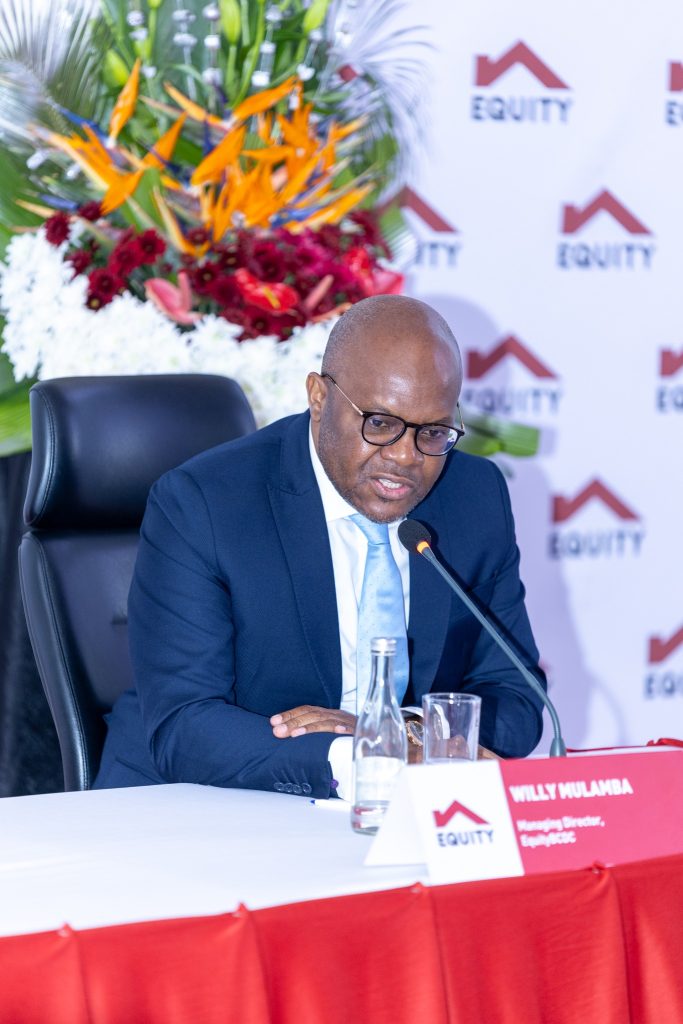 In Uganda, Profit after Tax recorded a significant 61% increase to Kshs. 2.9 billion, up from Kshs. 1.8 billion. Investment securities grew by 23% to Kshs. 39.6 billion from Kshs. 32.1 billion, while total equity rose by 23% to Kshs. 18.5 billion, compared to Kshs. 15.8 billion previously.
In Uganda, Profit after Tax recorded a significant 61% increase to Kshs. 2.9 billion, up from Kshs. 1.8 billion. Investment securities grew by 23% to Kshs. 39.6 billion from Kshs. 32.1 billion, while total equity rose by 23% to Kshs. 18.5 billion, compared to Kshs. 15.8 billion previously.
In Rwanda, total assets expanded by 5% to Kshs. 122.9 billion, up from Kshs. 116.6 billion, driven by a 34% growth in the loan book, which increased to Kshs. 62.3 billion up from Kshs. 46.4 billion. Total equity also recorded an 18% increase to Kshs. 19.6 billion, up from Kshs. 16.6 billion.

In Tanzania, Profit after Tax almost doubled, growing by 88% to Kshs. 1.5 billion, up from Kshs. 0.8 billion. Shareholders’ funds rose by 83% to Kshs. 12.1 billion, up from Kshs. 6.6 billion, while loans and advances grew by 51% to Kshs. 37.4 billion, compared to Kshs. 24.8 billion in the previous period.
On business diversification, the Group’s growth in the insurance industry is transforming the Group from a Banking Group into an integrated financial services Group that is powered by technology.
Equity Group has now secured three (3) underwriting licenses for life insurance, general insurance, and health insurance. This enables the Group to provide customers with the holistic tools of risk management to protect their lives, their health, and their wealth.
Equity Insurance Group registered a 36% growth in Profit before Tax to Kshs.1.46 billion up from Kshs. 1.07 billion in the prior year. This growth is supported by a 71% increase in gross written premiums of Kshs. 6.55 billion up from Kshs. 3.83 billion. Insurance revenue grew by 57% to Kshs.2.46 billion up from Kshs. 1.57 billion in the prior year whilst the Balance Sheet grew by 36% to Kshs.32.1billion up from Kshs. 23.7 billion.
In its 3rd year of operations, the life insurance business has become the third largest group credit insurance company with a market share of 8% of group and credit life, 3rd in return on equity and 4th in profitability.

Equity Life Assurance saw its gross written premiums grow by 28% to Kshs.4.9 billion, up from Kshs.3.8 billion, with net insurance and investment revenue growing by 20% to Kshs. 1.39 billion up from Kshs.1.16 billion and with profit before tax rising by 21% to Kshs. 1.3 billion Kshs.1.1 billion. Insurance contract liabilities grew by 18% to Kshs. 23.3 billion from Kshs.19.7 billion.
Total assets increased to Kshs. 29.5 billion, up from Kshs 23.7 billion. Return on average equity stood at 37.7% with a return on average assets of 4.5%. Equity Life Assurance has served 6.8 million unique customers with insurance solutions and has issued 17.8 million policies to date.

Equity General Insurance began operations this year and has had a strong start. With gross written premiums of Kshs.1.67 billion within the first 9 months, the business generated insurance revenue of Kshs.1.01 billion to register a profit before tax of Kshs. 140 million, a 19.0% return on average equity and 8.0% return on average assets.
Total assets stood at Kshs. 2.3 billion as capital adequacy rose to 126%, a reflection of strong underwriting culture and risk management practices.
Equity Health Insurance, which was licensed in July this year, has, by the end of the quarter, underwritten gross written premiums of Kshs. 5 million and closed at a profit before tax of Kshs. 23 million. Equity Health Insurance registered a return on average equity of 2.6%, return on average assets of 1.9%, and total assets of Kshs. 831 million.
The insurance subsidiaries show strong growth momentum with enormous headroom to contribute towards the increase in insurance penetration in East Africa from an average of 1.34% to eventual double digits.

By demonstrating a decent start in achieving break even within 6 months of operation for each of the subsidiaries, the diversified business is poised to contribute towards increased profitability and return on equity to the overall Equity Group performance.
The non-banking businesses, the technology and insurance Group, raised their total contribution to Group assets from 1.5% to 1.9% year on year and revenue to 3% up from 2.8%.
The non-banking Group generated a return on Equity of 38% and a return on assets of 6.6% compared to return on Equity of 26% and return on assets of 3.7% of banking group and return on equity of 26.% and 4.1% of return on assets of the entire Group.
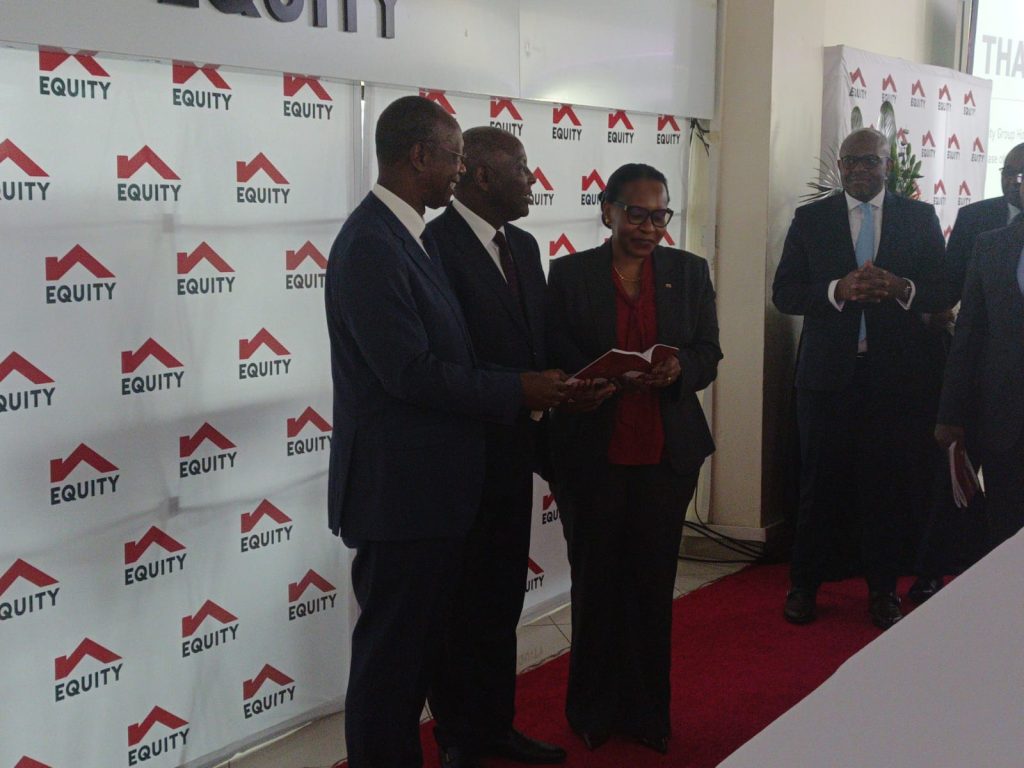 The investment in systems to create convenience with compression of distance and time for customers has led to a transformation of the business delivery model with migration from fixed and variable cost channels to self-service channels.
The investment in systems to create convenience with compression of distance and time for customers has led to a transformation of the business delivery model with migration from fixed and variable cost channels to self-service channels.
While over 98% of transactions happen outside the branch, 87.4% of these happen on digital channels delivering unparalleled ease and convenience of 24 hour banking.
The Group’s loan book quality remains stable with Group NPL ratio having peaked to 14.0% in Q1 2025 from 13.4% in Q3 2024 to 12.1 in Q3 2025, driven by improvement in NPL ratios of Equity Bank Tanzania 2.7%, down from 11.1% and Equity Bank Uganda which registered NPL ratio of 8.8%, down from 20.9%.
Equity Group outperformed the Kenyan industry registering NPL ratio of 12.1% against industry average ratio of 17.1% as at September 2025, while maintaining an IFRS NPL coverage of 71.4%. The Group’s cost of risk declined from 2.1% to 1.9% year on year.
“Technology remains central to the Group’s strong operational performance and strategic resilience. During the quarter, we further improved system reliability, launched key digital integrations across markets, strengthened fraud controls, and advanced our AI and data governance frameworks.
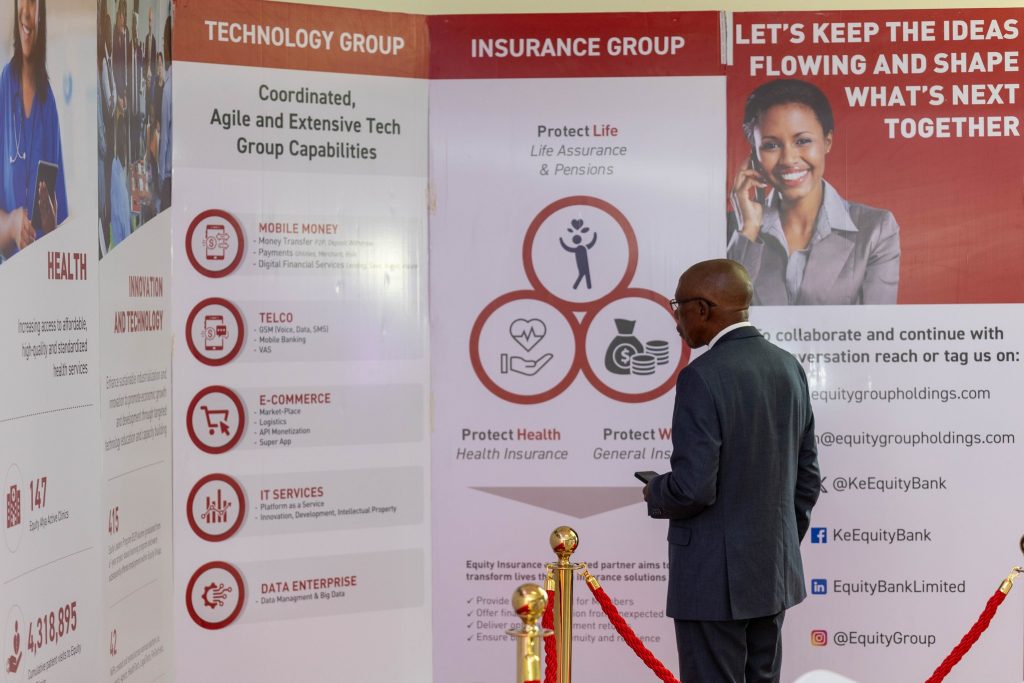 Through investments in modern architecture, emerging AI and data capabilities and the transformation to platform-based business models with integrated ecosystems, we have future-proofed our operations and enhanced service uptime and stability across all markets.
Through investments in modern architecture, emerging AI and data capabilities and the transformation to platform-based business models with integrated ecosystems, we have future-proofed our operations and enhanced service uptime and stability across all markets.
This approach not only strengthens brand trust and customer confidence but also positions the Group to capture emerging opportunities in digital finance, data innovation and ecommerce,” said Dr Mwangi, who concluded, “As part of our multi-year information security transformation and remediation program, we continue to invest heavily in security and compliance frameworks aligned with regulatory expectations and international standards such as ISO 27001 and PCI-DSS.
These investments assure data protection and safeguard our digital ecosystem as transaction volumes and API integrations scale,” said Dr Mwangi and continued.
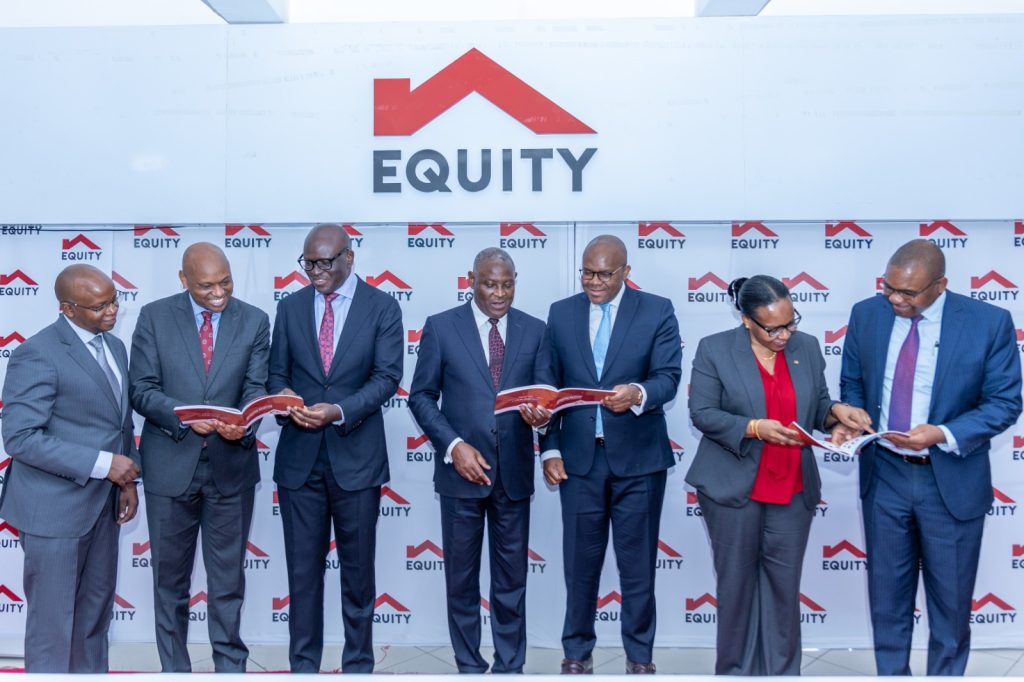 “The strong growth in the region presents a long-term runway and significant headroom for sustained expansion of the Group. We are deeply grateful to our customers for their continued support throughout the transformation journey, for their patience and resilience during the temporary system disruptions.
“The strong growth in the region presents a long-term runway and significant headroom for sustained expansion of the Group. We are deeply grateful to our customers for their continued support throughout the transformation journey, for their patience and resilience during the temporary system disruptions.
These changes are part of our commitment to building a transformative institution: a one-stop financial services provider enabling customers to save, borrow, insure, invest, and transact seamlessly on a 24-hour basis.
We are pleased to share that the system instability is now behind us. Our focus has shifted to product innovation, with our product houses actively rolling out new offerings to empower our customers and unlock greater opportunities for wealth creation.
Importantly, this transformation has not altered our true north, our unwavering commitment to micro, small, and medium enterprises.
We are proud to be recognized in the recent banking industry survey as the home of 45% of all SME loans disbursed between January and July this year.
We remain dedicated to expanding this impact and exploring new avenues to support SMEs as our core focus.’’
In Q3 2025, the Equity Group Foundation (EGF) continued to advance its mission of transforming lives and expanding opportunities across the East and Central Africa region through its social impact investment initiatives and pillars of impact.
The Education and Leadership Development pillar celebrated exceptional results in its Equity Leaders Program (ELP) where 145 of its scholars received fully funded global university scholarships worth Kshs 3.8 billion (USD 29.47 million).
This included 16 placements to Ivy League institutions including Harvard (4), Princeton (8), Columbia (2), and the University of Pennsylvania (2), bringing the cumulative number of ELPs admitted to global universities to 1,115, with 224 Ivy League placements to date.
Across the Enterprise Development and Financial Inclusion pillar, 30,000 entrepreneurs received training and 91,000 MSMEs accessed Kshs 38 billion in credit, and earning Equity the 2025 Think Business Award for Best Bank in Financial Literacy.
Additionally, the Kenya Bankers Association(KBA) ranked Equity Bank as the market leader in SME lending with over Kshs 90.727B disbursed to SMEs in FY2025 as of July 2025.
To Date, under the Young Africa Works program in partnership with the Mastercard Foundation, Equity Group Foundation (EGF) has mobilized 720,968 previously underserved MSMEs for economic empowerment interventions. Kshs 78 billion has been disbursed in loans to MSMEs within the program, by a USD $20M Credit Guarantee.
Through the Food and Agriculture pillar and the Energy, Environment, and Climate Change pillar, 80,000 farmers were trained in the quarter on climate-smart agriculture, while cumulatively over 535,000 clean-energy solutions have been distributed, positively impacting 2.1 million people, with 39.6 million trees planted to restore natural ecosystems and resilience.
In deepening social and health inclusion EGF has, through the facilitation of a USD 20 million risk-sharing facility with IFC, continued to extend financial access to refugees and host communities in 14 counties, while Equity Afya expanded its reach to 147 medical centres in both Kenya and the DRC, that have served over 4.3 million patient visits, anchored on SafeCare international quality accreditation.
Underpinning these pillars, EGF is leveraging its Innovation and Technology pillar with a target to train over 600,000 young people on advanced technologies such as AI, machine learning and data analytics through partnerships with iamtheCODE, Huawei and WorldQuant University, along with a focus on strengthened impact measurement through the global Sustainable Disclosure Impact Data (SDID) Reporting framework.
Recognized with the Sustainable CSR Award 2025, EGF continues to demonstrate how integrated investments in education, enterprise, health, and climate resilience can deliver inclusive growth and sustainable returns for Africa’s people and its partners.
Equity Bank was named the “Best Regional Bank in East Africa” at the African Banker Awards 2025 and retained title as Kenya’s most valuable brand in 2025, for the second year running.
These recognitions affirm Equity Group’s regional leadership and role in advancing financial inclusion and socio-economic transformation across the continent

